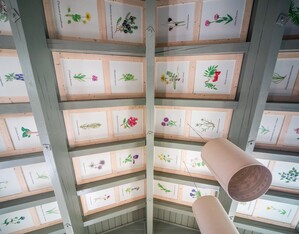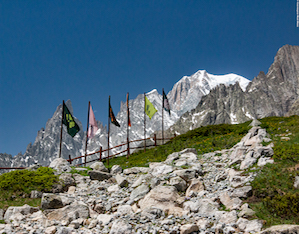Some would have renamed Mont Blanc Monsossure, in memory of the first courageous climber to reach its summit.. Horace Bénédict de Saussure was a botanist and naturalist, so it was only natural to name after him an Alpine garden at the foot of the same magnificent mountain he had ascended.
Also known as “Giardino alpino del Pavillon” Saussurea is Europe’s highest Alpine garden, at an altitude of 2,175 m above sea level, atop a glacial promontory of Mont Fréty, part of the Mont Blanc massif. Founded in 1984 by the Saussurea Foundation (former Donzelli Gilberti Ferretti Foundation) that still manages it with the support of the Valle d’Aosta Region, Saussurea was inaugurated in 1987 and dedicated to the Geneva-born scientist Horace-Bénedict de Saussure known for being the first to ascend Mont Blanc in 1786. The garden is home to 900 different varieties of Alpine flora, sorted by areas ad habitats. One section is dedicated to multiple rock gardens, each illustrating different habitats: Val d’Aosta, western Alps, and exotic environments such as North America, Iberian Peninsula, Eurasia with Himalayan edelweiss flowers; this first area also includes a small medicinal herb garden and the calcicole fauna (plants that grow on alkaline soil rich in calcium carbonate, nutrients and mineral microelements). Another section, similar to others found in other Alpine gardens, such as the older Chanousia Botanical Garden exemplifies specific habitats: Alpine pastures (with, among several other species characterising these high-altitude meadows, Nigritella comune, a small purply red vanilla-scented wild orchid), damp areas, a scree slope (a steep slope just below the permanent snowline, littered with detritus and sand inhabited by the so-called pioneer plants), an alder grove (Alnus viridis), and a rhododendron-bilberry habitat (with its “twisted bushes” that spread out rather that growing upwards).



